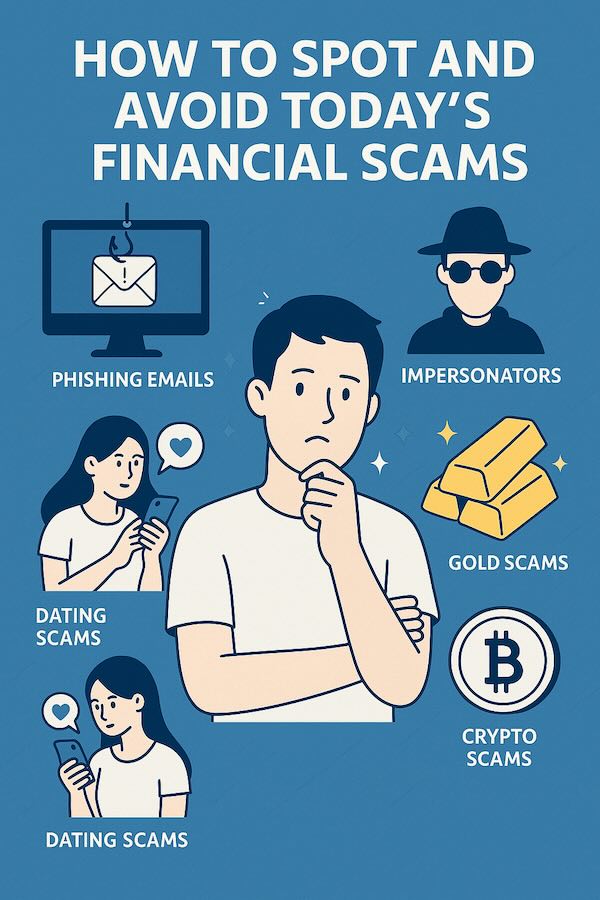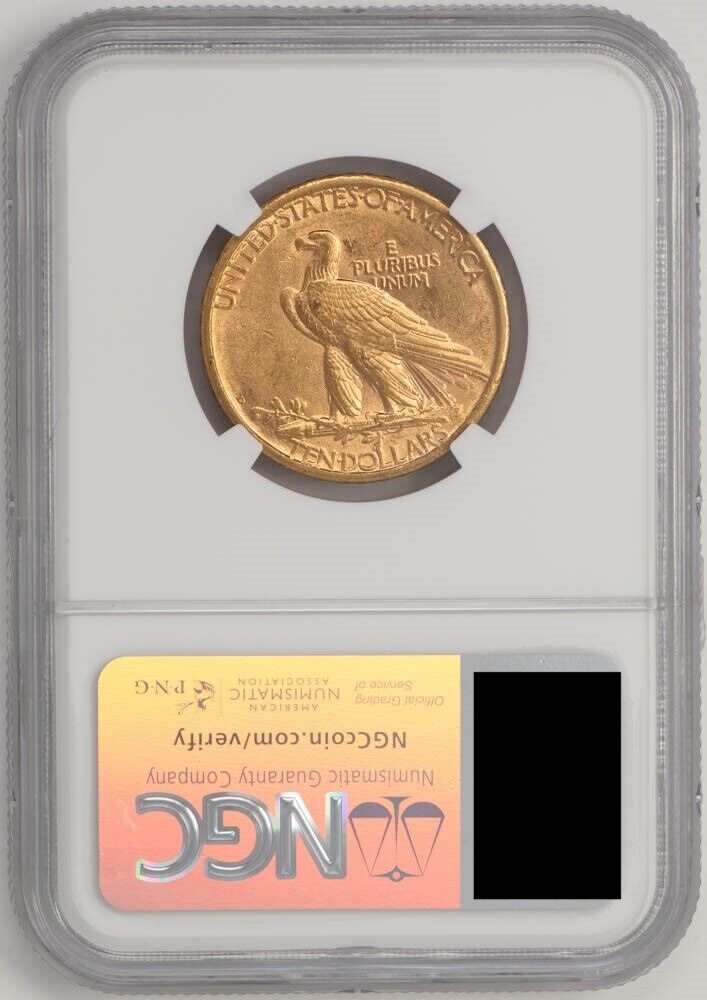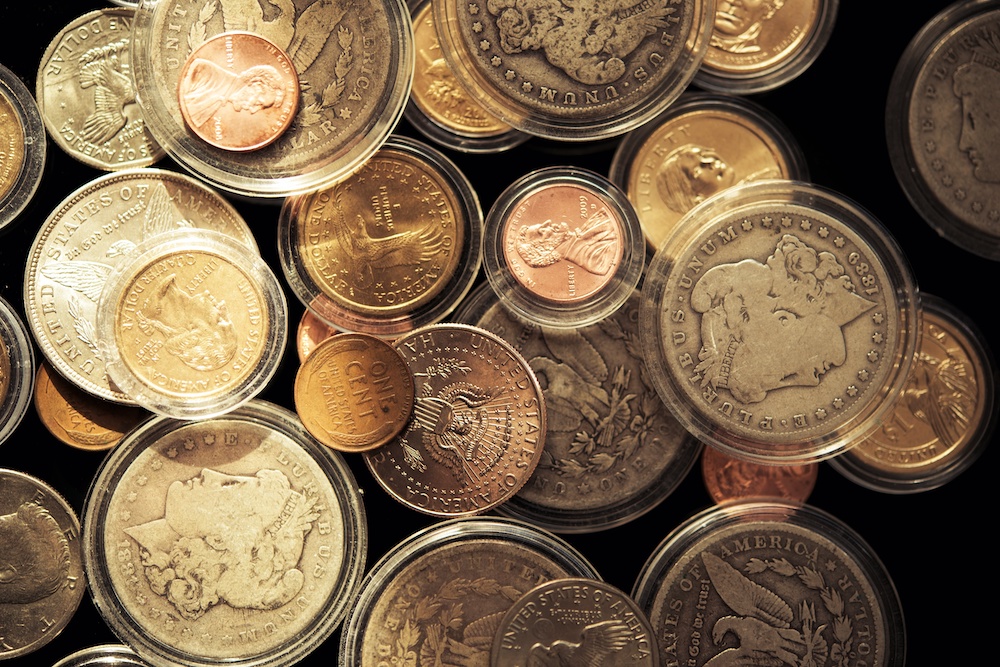In an age when financial uncertainty drives more people to seek refuge in tangible assets like gold and silver, the dark side of investing has evolved just as quickly. Financial scams are more sophisticated, using emerging technology, psychological manipulation, and social engineering to steal from even the most cautious investors.
If you’re asking yourself where to buy gold safely, you’re already ahead of the curve. But knowing where to buy isn’t enough. You must also understand how to recognize—and avoid—the growing list of scams plaguing today’s financial world.
Why Financial Scams Are More Dangerous Than Ever
Financial scams used to be easy to spot—bad grammar in emails, foreign lottery wins, and blatant phishing attempts. Today’s threats, however, are cloaked in professionalism and powered by AI and deepfake technology. Scammers now create realistic websites, fake investment dashboards, and even voice clones of trusted figures. And it’s not just crypto anymore—gold and silver scams are booming, too.
In 2024 alone, over $6 billion was lost to investment fraud involving gold courier schemes and fake precious metals sales. These scams target the elderly, the anxious, and even seasoned investors who simply let their guard down at the wrong moment.
Let’s break down the most common financial scams today and how to avoid them.
Today’s Most Common Financial Scams
1. Precious Metals Scams
Gold has become a prime target for scammers as an asset without a paper trail. These schemes usually fall into two categories:
- Fake Dealer Scams: Slick websites offering “government-issued” coins or “rare collector sets” at inflated prices. The markup is often 40–100% higher than the market value. By the time buyers realize they’ve overpaid, the website is gone.
- Gold Courier Scams: Victims are contacted by someone claiming to be from a government agency or law enforcement. They’re told their money is at risk. They are advised to convert savings into gold and turn it over to a “courier” for safekeeping. Once the gold is handed off, it’s gone.
If you’re searching for where to buy gold, ensure the dealer is established, has verifiable, third-party reviews, and is a member of organizations like the PNG, ANA, or ICTA.
2. Romance-Driven Investment Schemes
Scammers build emotional relationships online and slowly lure victims into investing in fake crypto or precious metals deals. The emotional trust often makes victims ignore red flags and send money or private information.
3. Impersonator Scams
These involve fake calls or emails from someone pretending to be from your bank, brokerage, or even the IRS. They may say your retirement funds are in danger and urge you to move them into a “safe” investment—often gold—under their control.
4. Crypto Ponzi Schemes
While Bitcoin and Ethereum are legit technologies, fraudsters exploit the hype. They promise 10x returns, display fake trading dashboards, and vanish once the account is “cashed out.” Many con artists also pose as precious metals dealers offering crypto-backed gold products.
Scam Red Flags to Watch Out For
Ask yourself these questions if someone’s pushing you to invest:
- Are they using fear tactics? (“The dollar is collapsing, act now or lose everything.”)
- Are they pressuring you to act immediately? (“This offer ends today!”)
- Do they guarantee returns? (“10% monthly guaranteed.”)
- Are they asking for personal or banking info upfront?
- Do they seem reluctant to let you research or consult others?
These are all textbook warning signs. Legitimate dealers will never rush you and will always encourage education first.
How to Protect Yourself from Financial Scams
- Verify the Dealer: When deciding where to buy gold, use trusted sources like FindBullionPrices.com to compare prices from vetted dealers.
- Avoid Cold Calls: Reputable dealers don’t solicit new clients by phone out of the blue.
- Check Third-Party Reviews: Look on Trustpilot, the BBB, or Google Reviews for consistent positive feedback.
- Use Escrow When Possible: Use a secure payment method or escrow service when buying from peer-to-peer marketplaces or unfamiliar sources.
- Never Send Cash or Crypto to Strangers: Always use traceable payment methods and never give out personal data over the phone.
What to Do If You’ve Been Targeted
If you suspect you’ve been caught in a scam:
- Stop communication immediately.
- Secure your accounts: Contact your bank and credit card providers.
- Report the incident:
- FTC: reportfraud.ftc.gov
- FBI IC3: ic3.gov
- SEC: sec.gov/tcr
- CFTC for gold and commodity frauds: cftc.gov
Don’t let embarrassment keep you from reporting. These scams are engineered to deceive even the savviest investors.
The Bottom Line: Stay Informed, Stay Skeptical
Gold and silver can be smart hedges against inflation and financial volatility. But like any powerful tool, they require knowledge and care. Scammers know that uncertainty creates opportunity—for them.
By understanding the types of scams out there and practicing basic due diligence, you’ll be better prepared to make smart, secure decisions. If you’re still asking yourself where to buy gold safely, choose long-established dealers with clear pricing, transparent policies, and educational resources.
Remember: if it sounds too good to be true—it probably is. Stay sharp. Stay skeptical. And invest wisely.






